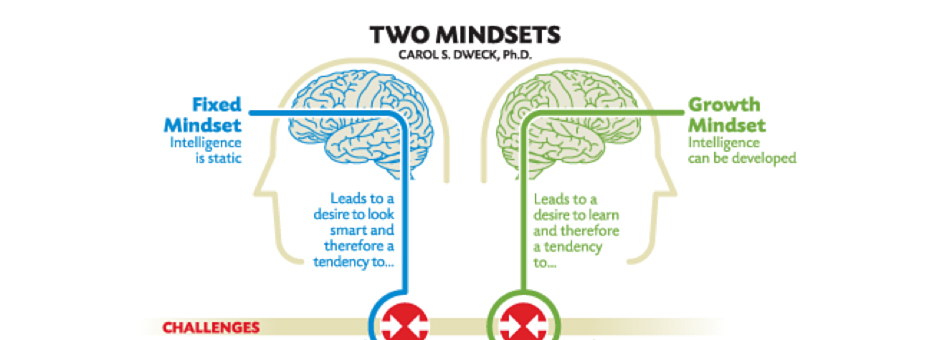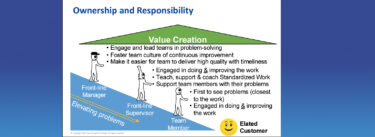Today is Introduce a Girl to Engineering Day.
February 21 is the day during Engineers Week, Feb. 18 to 23, 2019, devoted to showing girls what engineers do and giving them an opportunity to see themselves as engineers.
To mark it, we’re re-running a popular article by Katrina Appell, PhD, a coach with our Lean Product and Process Development initiative. She utilizes her engineering degrees to help big and small companies create sustainable systems for consistently delivering great products and profitable value streams.
In “Why Meaningful Improvement Requires a ‘Growth Mindset,’” which has garnered more than 3,100 views, she explores how the mindsets of leaders affect the bureaucracies they lead. A “fixed” mindset leads to a coercive bureaucracy that doesn’t use people’s skills and talents. A “growth” mindset that supports people’s ability to learn by overcoming obstacles leads to an enabling bureaucracy.
Read the article and share it with a girl or young woman! Then learn more about Introduce a Girl to Engineering Day.
Ever feel frustrated, constricted, or powerless to do the right thing?
This is what happens in your typical bureaucracy. A “bureaucracy” is supposed to be the most efficient and rational way to organize work, but the word rightly brings out thoughts of red tape and obstacles to navigate. These thoughts come as a result of experiences we’ve all had with what researcher Paul S. Adler calls coercive bureaucracies, which use rules, procedures, and structure to control people to ensure that the right things are done. On the flip side, an enabling bureaucracy uses rules, procedures, and structure to support people to get the right things done. Read more about the two different kinds of bureaucracies here.
It’s interesting stuff. And I’ve been thinking about how, as leaders, our mindset affects the bureaucracies we lead.
The image below is based on Carol S. Dweck’s work, author of Mindset: The New Psychology of Success.

Image: Nigel Holmes / Graph Content: Carol Dweck
In her book, she explains that for those of us with a “fixed” mindset, we view ourselves as inherently smart and assume that as human beings, we can design and organize work effectively. Sounds good, right? Well, no. In effect, this leads to a coercive bureaucracy where we’re really not using the skills and talent of people throughout the entire organization. As a result we get an ineffective bureaucracy as the design doesn’t match the reality of the world we live in. With a fixed mindset, we think of intelligence as static, some of us are smart, others are not, so there isn’t even a need to coach and develop others.
On the other hand, for those of us with a “growth” mindset, we have a desire to learn and design and organize work in a way that it can be adapted and adjusted as we learn. We understand that we learn through the very obstacles standing in our way. For this reason, we support our team members – the people who know the work best – to learn through the obstacles standing in their way. We employ a growth mindset in our personal development and support others to develop their own growth mindset. Since we believe intelligence can be developed, we coach and develop others. How could we not?
What does all of this have to do with meaningful improvement by way of lean thinking? If we want to create enabling bureaucracies (what a lean organization really is), we need to have growth mindsets with a willingness to learn. It isn’t surprising that mindset is in the foundation of the lean transformation model house. It is the foundational stability needed to enable us to meet our organizational objectives. Proceeding without this stability will have similar consequences as moving forward without the foundational stability in the Toyota Production System house.
The good news? You guessed it, a growth mindset can be learned. If you don’t believe you have one, your intelligence isn’t fixed! The first step is awareness.
Do you have a fixed or growth mindset?
If you have a fixed mindset:
- Are you comfortable with the consequences for you and your organization?
- Do you want to develop a growth mindset? If so, here are the first steps: http://mindsetonline.com/changeyourmindset/firststeps/index.html
Other helpful questions to ask yourself and your team members:
- What kind of bureaucracy do you lead in?
- What kind of bureaucracy do you want to lead in?
- Do you want to change your mindset?
What Next?
- Know a young woman who is interested in engineering? Get her a copy of LEI’s latest book, Designing the Future.






